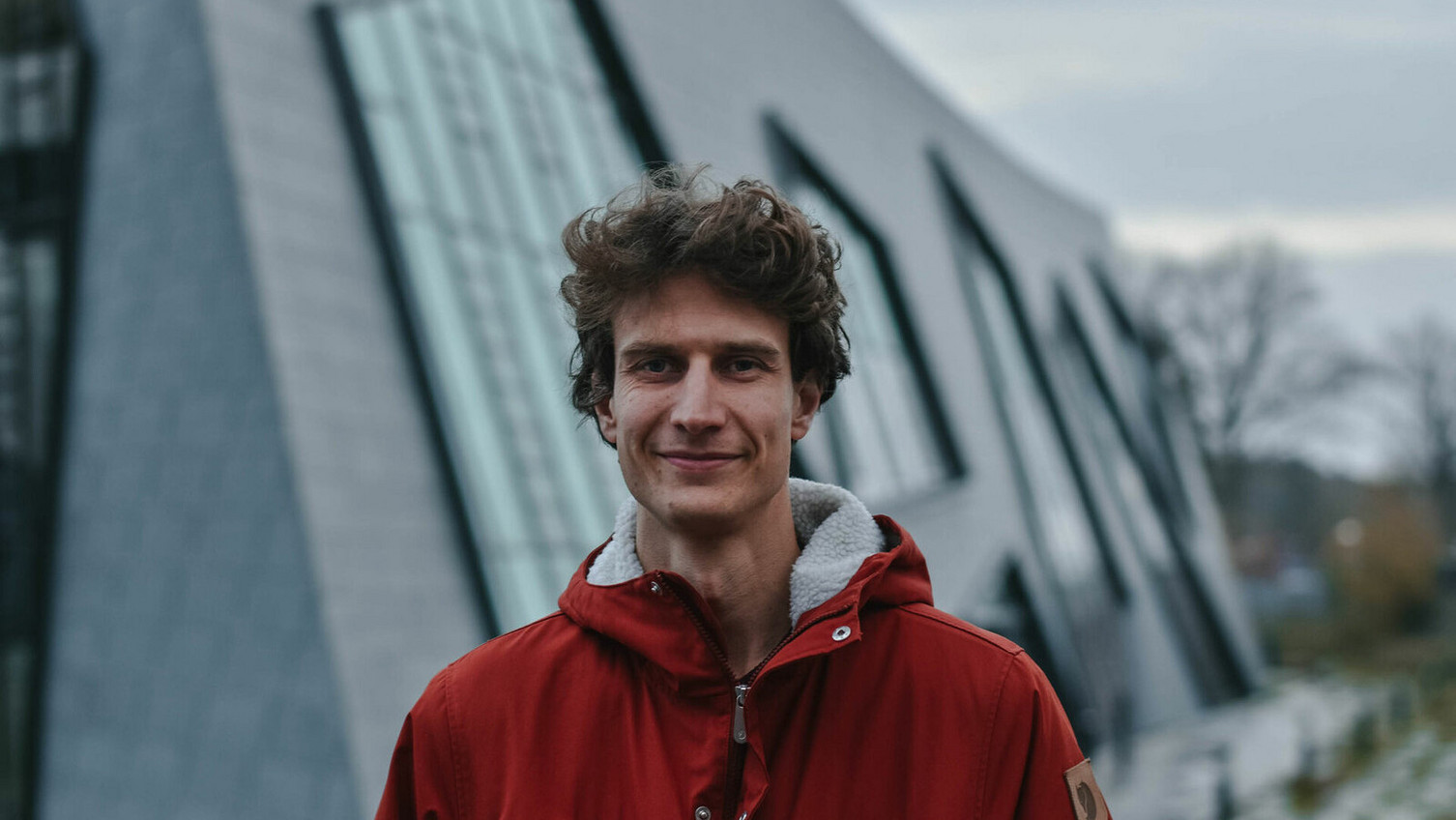New at Leuphana: Prof. Dr. Steffen Farny - Right into the heart of capitalism
2020-12-14 The sustainability scholar researches social entrepreneurship. It could become very helpful, not only to rebuild crisis regions after natural disasters, for example.
At People's Supermarket, it hardly looks any different from other grocery shops: fruit and vegetables lie in large counters, the shelves are full of canned goods, pasta or breakfast cereals. Nevertheless, the London shop differs in some ways from large chains: The shelves were donated by a school. Supply chains are checked for sustainability. And people work at the tills who would otherwise find it difficult to get a job. "This market works radically differently - and that, right in the heart of capitalism," explains Dr Steffen Farny, Junior Professor of International Social and Sustainable Entrepreneurship. The academic conducts research on social entrepreneurship and the question of how sustainable business can become viable. Funded by the European Commission's Research Framework Programme, he investigated, for example, the start-up processes of cooperative enterprises. "Especially in the beginning, you need the support of volunteers," explains the researcher and speaks of "moral engagement". In the case of the People's Supermarket, there were many helping hands. In the meantime, around ten people are permanently employed there. The shop also no longer has a management and is not expected to grow. "Projects of this kind do not function as joint-stock companies, but as cooperations and cooperatives," explains Steffen Farny. The scientist is interested in how radical innovation like People's Supermarket survives.
While still a student at Aalto University in Helsinki, Farny gained start-up experience himself. "We wanted to help after the strong earthquake in Haiti in 2010 and started a company that built communal dry toilets in response to the cholera outbreak, for example." The use of the sanitary facilities was free of charge. The start-up was expected to sustain itself through the sale of soap and toilet paper. The founders cooperated with a local women's initiative. "At some point, however, we ran out of capital and could not continue," Farny recalls. The problem: the company was founded in Finland. This meant that Farny and the start-up team were too far away from the action. "We couldn't anchor ourselves locally. Unfortunately, social start-ups are difficult to scale," the scientist explains. Nevertheless, sustainable entrepreneurship is becoming more and more prevalent, especially among NGOs. Pure fundraising campaigns are called for less and less. "Development aid is always political as well. The old form could be degrading. Today, we want people to be able to act in a self-determined way," explains Steffen Farny. The economic viability of the enterprises is part of this. "The businesses must also generate profit, but not according to the principle of constant growth. It is much more about securing livelihoods and making the enterprise part of the local society," explains Farny.
The success of a social enterprise is strongly determined by how much the entrepreneurs feel they belong to the foundation. Part of his research therefore deals with the role of emotions in organisational processes. "Empathy in particular plays a major role in the success of sustainable start-ups," says Steffen Farny. Bill Drayton, who is considered the father of social entrepreneurship, considers empathy a key competence in business. Empathy can, for example, improve customer loyalty, strengthen the team, but also ensure a social reshaping. "It's about changing behaviour and thinking. The community should act and manage more sustainably," explains Farny.
In teaching, Steffen Farny is breaking new ground with challenge-based entrepreneurship education: "I recommend that my students start socially-sustainable start-ups while they are still at university and see this as continuing education."
Steffen Farny studied the double-degree Master's programme "Entrepreneurship" at the University of Cologne and the Helsinki School of Economics. From 2012 to 2016, he was a research assistant at the Department of Management Studies at Aalto University, Finland, where he received his PhD. In 2017, he received the Best Thesis Award from the Aalto University School of Business. He conducted research at the Faculty of Business Studies, University of Vaasa, Finland, and returned to Aalto University a year later as a post-doc. He was also a visiting scholar at the Mendoza School of Business, University of Notre Dame, USA. In 2020, he was appointed Junior Professor for International Social and Sustainable Entrepreneurship at the Centre for Sustainability Management at Leuphana University Lüneburg. Steffen Farny is also head of the Social Change Hub (SCHub) at Leuphana. The SCHub is a central contact point for student social engagement, which, in addition to its own teaching and impulse offers, focuses on networking within and outside the university.

